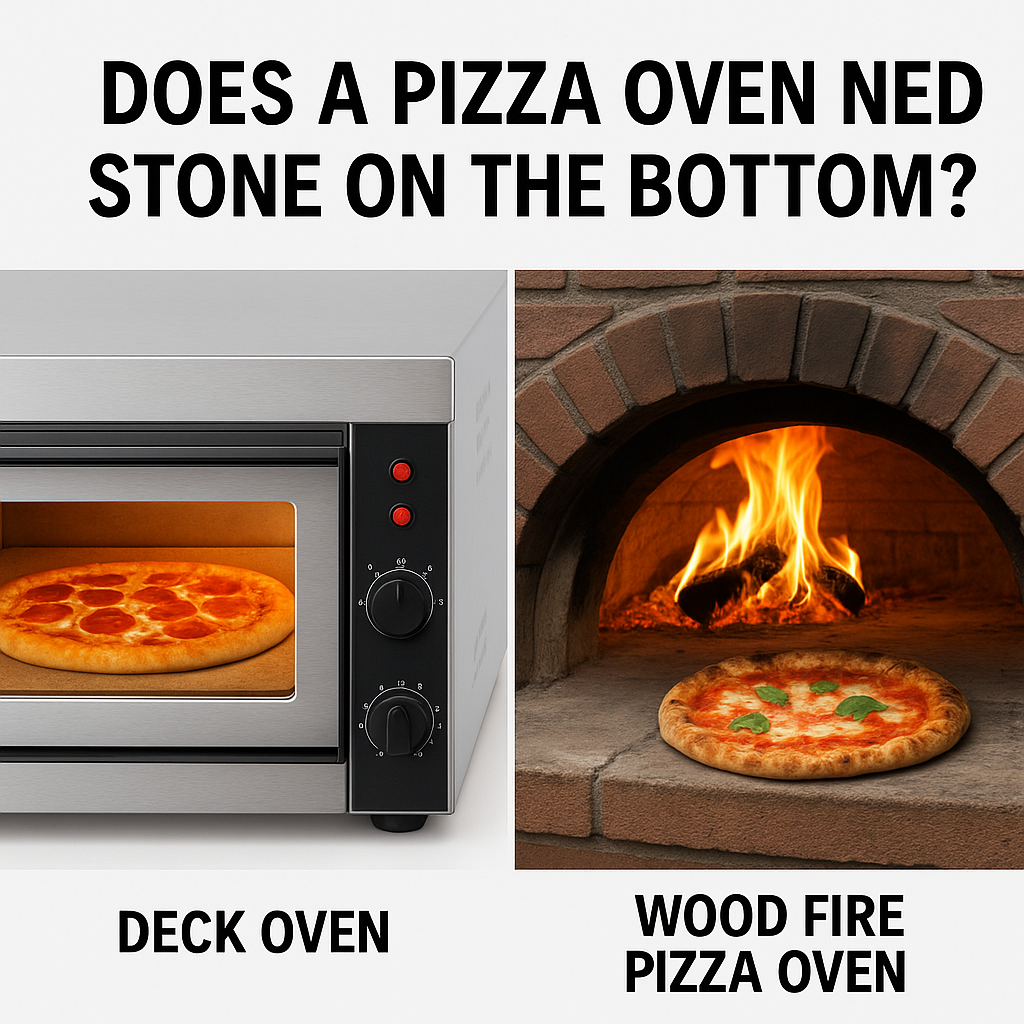When it comes to creating authentic, restaurant-quality pizza, one of the most common questions chefs and pizzeria owners ask is: does a pizza oven need to have stone on the bottom?
The answer is that while not every pizza oven requires a stone base, using one—especially in deck ovens and wood fire pizza ovens—brings significant benefits for both cooking performance and pizza quality.
Why Stone Makes a Difference
Stone has been used in pizza baking for centuries. The reason is simple: stone retains and distributes heat evenly. Unlike thin metal surfaces that lose heat quickly, stone absorbs high temperatures and holds them consistently. This provides the perfect cooking surface for pizza dough.
Key Benefits of Stone in Pizza Ovens:
-
Even Heat Distribution: Prevents hot spots and ensures the entire base of the pizza cooks at the same rate.
-
Crispier Crusts: Stone draws moisture out of the dough, creating that sought-after golden-brown, slightly charred, crisp base.
-
Authentic Flavor & Texture: The stone replicates the conditions of traditional Italian ovens, giving pizzas a light, airy interior and a smoky, rustic flavor.
-
High Heat Tolerance: Stone can withstand and maintain the extreme heat required for fast pizza baking (400°C+ in wood fire ovens).
Stone in Deck Ovens
Deck ovens, commonly used in commercial kitchens, almost always feature a stone or ceramic deck. The stone deck allows multiple pizzas to be baked directly on its surface, producing:
-
Consistent results across batches.
-
Reduced recovery time between pizzas (the stone stays hot even when the door is opened).
-
Professional-quality crusts without the need for additional pizza stones or pans.
This makes deck ovens a favorite in pizzerias that need volume, reliability, and authenticity.
Stone in Wood Fire Pizza Ovens
Wood fire ovens are traditionally built with a thick stone or brick base. The benefits here go even further:
-
Extreme Heat Retention: The stone base works with the oven dome to radiate intense, even heat.
-
Faster Cooking Times: A pizza can cook in as little as 90 seconds while still achieving a perfectly crisp crust and bubbly cheese.
-
Smoky Flavor Profile: Combined with the burning wood, the stone surface enhances flavor and texture, giving pizzas their signature Neapolitan-style character.
Without stone, the base would not achieve the same blistered yet tender balance that defines authentic wood-fired pizza.
Do All Pizza Ovens Need Stone?
Not all pizza ovens require stone on the bottom—some modern conveyor ovens and countertop electric models use metal or ceramic plates. These can still produce good results, but for traditional-style pizza with crispy, artisanal crusts, stone is unmatched.
Final Thoughts
If you’re serious about pizza quality, investing in a pizza oven with a stone bottom—whether a deck oven or a wood fire pizza oven—is worth it. Stone ensures the perfect combination of heat retention, consistency, and authentic results that keep customers coming back for more.
👉 In short: stone doesn’t just make pizza better—it makes it unforgettable.










